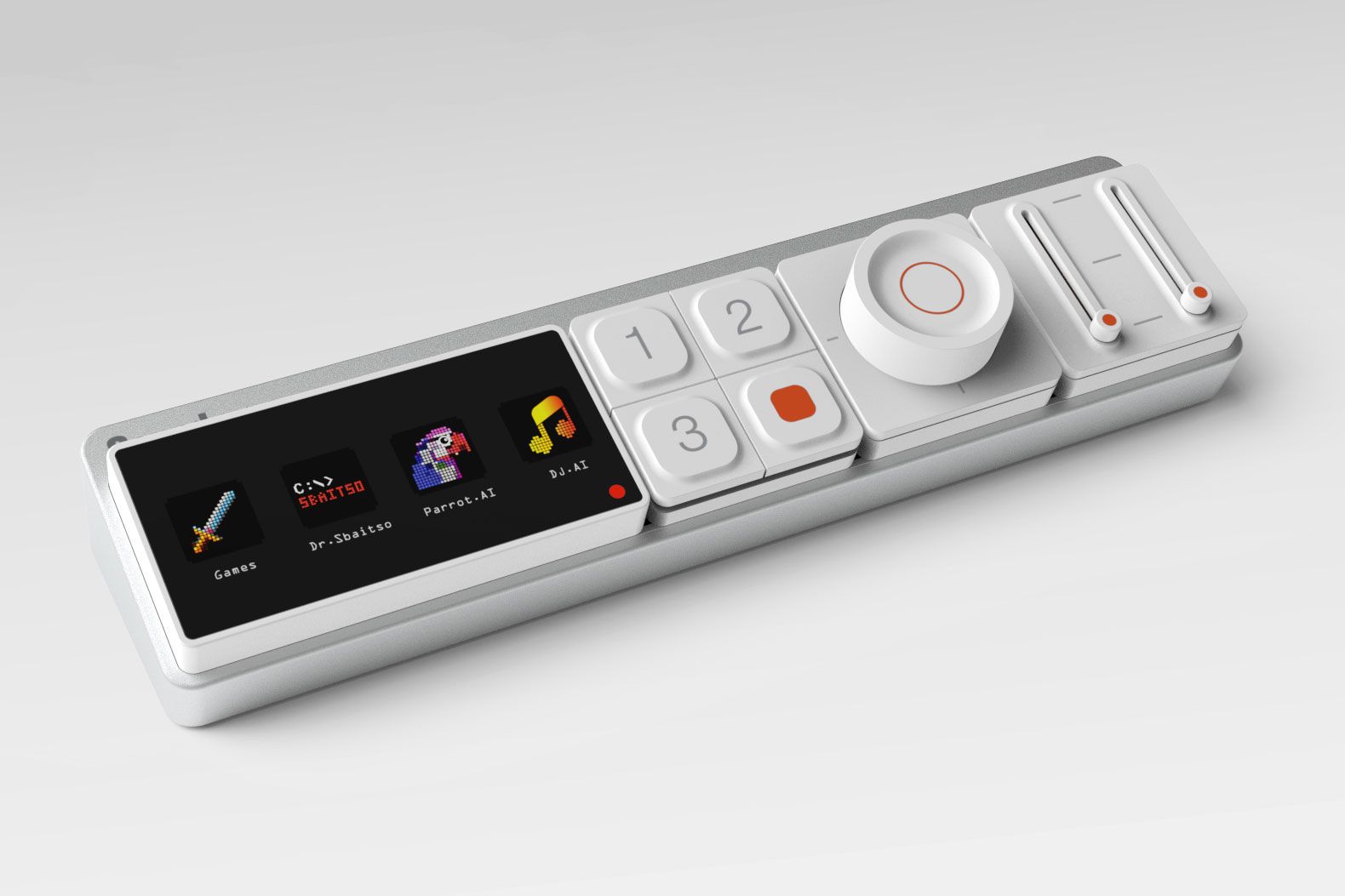Creative is betting big on nostalgia and modularity with its new Sound Blaster Re:Imagine hub, launching today on Kickstarter for $329. The magnetic, reconfigurable device blends audio routing with AI-powered features, targeting content creators who want more than Elgato's Stream Deck can offer. It's the company's boldest hardware play in years, complete with Linux OS and full root access for developers.
Creative just dropped a hardware surprise that nobody saw coming. The company famous for '90s PC sound cards is back with the Sound Blaster Re:Imagine, a modular audio hub that's part Stream Deck, part AI assistant, and entirely magnetic. The device launched on Kickstarter today with early bird pricing at $329, down from the planned $500 retail price. Creative clearly learned from other crowdfunding disasters - they're targeting June 2026 for delivery, giving themselves plenty of runway. The timing feels intentional too, coming right as content creators are looking for alternatives to Elgato's increasingly expensive Stream Deck ecosystem. Where Elgato focuses on streaming workflows, Creative is betting on audio professionals who need something more substantial. The Re:Imagine's party trick is its magnetic modular system. Users can snap buttons, dials, sliders, and even small screens onto the base unit in any configuration they want. Need more volume controls for a podcast setup? Swap out some buttons for rotary dials. Recording a band? Add more sliders for individual channel mixing. It's LEGO for audio geeks, and the executed photos show it actually works as advertised. But Creative didn't stop at hardware modularity. The device runs full Linux with an octa-core processor, 8GB of RAM, and 16GB of storage. That's more computing power than most people had in their entire desktop five years ago, all crammed into an audio control surface. The company is giving users full root access, essentially turning each device into a tiny Linux server that happens to have really nice audio routing. The AI features feel less gimmicky than expected. There's an AI DJ that can generate music based on themes, which could actually be useful for content creators who need background tracks. The DOS emulator is pure nostalgia marketing, but honestly, being able to play Commander Keen during studio breaks might sell a few units. More practical is the Matter smart home integration - you can control lights, cameras, and other gear without switching apps. Creative's timing here is interesting. The content creator economy is maturing, and people are willing to pay premium prices for professional tools. Elgato proved there's a market for dedicated control surfaces, but their products feel locked into specific workflows. Creative is positioning the Re:Imagine as the Swiss Army knife alternative - one device that can morph based on what you're doing. The hardware specs suggest Creative is serious about competing with professional audio gear. USB-C, optical input, dedicated headphone amp, Wi-Fi 6, Bluetooth - it's got every connection you might need. The built-in DAC and amp can supposedly drive studio monitors, which would eliminate another piece of desktop clutter for smaller setups. The Linux foundation is the real differentiator though. While Elgato's software is polished but limited, Creative is betting that developers will build custom apps for their platform. It's risky - most hardware crowdfunding projects promise developer ecosystems that never materialize. But Creative has the brand recognition and audio expertise to potentially pull it off. The $329 Kickstarter price is aggressive positioning against Elgato's $150+ Stream Decks. You're getting more hardware for roughly double the price, but Creative needs to prove that 'more' actually means 'better' for typical users. The modular concept sounds great until you realize most people will probably set it up once and never change it. Early backers are betting that Creative can execute on a complex hardware project with multiple moving parts. The magnetic modules need to be reliable, the software needs to be stable, and the whole system needs to work together seamlessly. That's a tall order for any hardware startup, even one with Creative's pedigree. The June 2026 delivery date gives Creative plenty of time to get it right, but it also means backers won't see their devices for over a year and a half. A lot can change in the content creator market by then, including new products from Elgato or other competitors.












